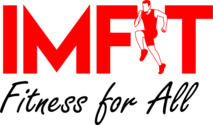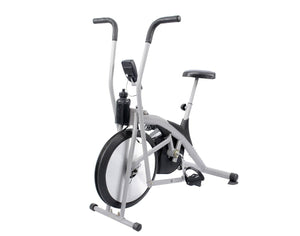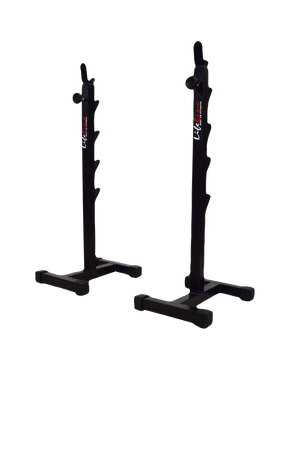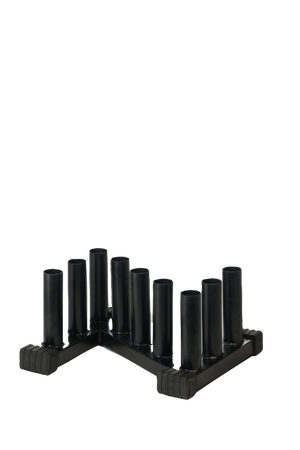Bulking ingredients are used to help bodybuilders bulk or gain muscle. It is difficult to choose the best bulking diet because there are many factors that need consideration like where you live, your age and gender, the flexibility of bulks in your lifestyle (workout schedule), etc.
## Bodybuilding Basics
- A bulking diet contains high amounts of carbs and protein, with just enough fat to maintain hormone balance.
- The bulking phase lasts three months or longer before the cutting cycle begins.
- There are several ways that bulking can be done, including dirty bulks (eating whatever you want) and clean bulks (consuming healthy food choices).
Bulking diets should provide a calorie surplus of about 500 calories per day.
The cutting phase lasts one to three months and is characterized by reducing cardio, carbs, sugar intake while increasing protein and healthy fats.
Cutting can be done with cutting dieting plans such as ketogenic diets for fat loss or intermittent fasting for cutting without muscle loss.
Another option includes using supplements that help you decrease body fat more easily during the cutting cycle. Don't forget that regular exercise also promotes weight loss along with staying hydrated the day!

##Benefits of Bodybuilding
## How Many Calories Are Enough Calories?
Overall, calories should be increased by around 500 calories per day. This will provide enough calories to build muscle and also prevent excessive fat gain.
Note: Keep in mind that the amount of calories needed varies from person to person based on weight and metabolic rate (how much energy your body uses). For example, a lighter individual with a faster metabolism may only need 300-400 calories more than their daily burn; whereas someone who is heavier or has a slower metabolism may require 700+ calories above what they already consume each day for successful bulking. The best way to determine how many calories you need would be through trial and error – start off eating an extra 100-200 calorie meal once every few days until you see results, then increase as necessary.
##Macronutrient Breakdown
Carbohydrates, protein, and fat are the three macronutrients that the body needs. When bulking, it's important to figure out the correct macronutrient ratios
Carbohydrates -

During the bulking phase, calories should come from carbs. A good starting point is to eat around one gram per pound of body weight. This number can be adjusted based on how your weight changes over time.
If you are gaining more than two pounds a week or have difficulty adding any weight at all, then you may want to increase this ratio slightly up to 75% calories coming from carbohydrates.
However, if you find that you are not gaining weight while following these guidelines, it's best to reduce carb consumption and bump up calories with fat instead so that dietary fats make up 30-40% of total calories consumed each day.
Protein -

Fat -

## MacroNutrient Ratios
-A ratio of 40/40/20
The calories in a bulking diet can come from carbs, protein, and fat. A good starting point is to have around 40% calories coming from carbohydrates, 40% calories coming from proteins, and 20% calories coming from fats.
This mixture should put you in a caloric surplus while still allowing for weight gain over time with minimal loss of muscle mass during this process. If your goal is gaining more than two pounds per week then it's best to bump the calories up slightly higher by increasing carb intake (50-60%) instead since dietary fats make up 30-40%.
However, if you find that you are not gaining any weight or having difficulty adding on bodyweight even though following these guidelines then reduce calories by bumping up calories with fat instead so that dietary fats make up 30-40% while maintaining a 40/40/20 mix.
It's vital to remember that your body, metabolism, and genetic make-up are all unique before we get into nutrient recommendations and the best healthy bulking meals. So there's no such thing as a diet or meal plan that works for everyone.
Set a reasonable weight gain goal for yourself and your body.
When you make too quick a weight reduction, it can have negative side effects and harm your metabolism, especially if you've struggled with disordered eating in the past, are taking any medicines, or have a medical condition. Before making any adjustments to your diet or exercise regimen, be sure to speak with your doctor.
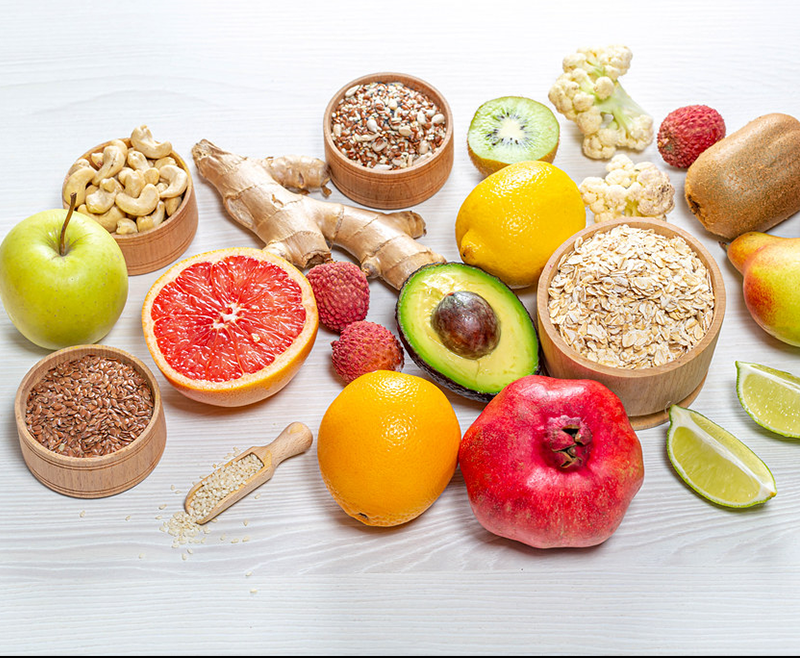
Now it's time to talk about what meals you should eat in order to achieve your bulking goals.
There are both good and bad methods to bulk.
Eating the right food is the most important part of bulking. With the right calories and protein intake, you will be able to get larger muscles!
Rather, you must consume the appropriate foods in adequate amounts to achieve desired results. Consuming the incorrect foods or not eating enough of them might result in poor outcomes
Foods to Focus On:

Chicken - A leaner meat than beef, chicken is a great source of protein.
- Whole Grains - Refined grains such as white bread often lack nutrients but calories. Switching over to whole grain foods like oatmeal will add more calories while also providing necessary fiber and vitamins!
- Salmon - Salmon contains healthy fats that assist in muscle growth without adding too many calories or cholesterol into your diet.
- Beans - Beans are another great source of calories and protein. They're also high in fiber which helps your body process the calories more efficiently.
Carbohydrates - Carbohydrates are needed for energy and calories. But they should only be consumed in moderation!

- Rice - Rice is a great source of calories and carbohydrates. Always go for brown rice as it contains more fiber than white!
- Pasta - Pasta is another high-calorie food that should be eaten frequently when trying to bulk up. Make sure you avoid noodles with creamy sauce or those covered in cheese as the calories can add up quickly!
- Fruits/Vegetables: Vegetables and fruits contain vitamins, minerals, and antioxidants that assist your body during workouts and provide energy throughout the day. They're also low-calorie foods which makes them great snacks for anyone who's looking to gain weight through bulking diets. However, eating too many vegetables might leave you feeling full without gaining any additional calories because they are lower in calories compared to other sources.
Supplements- Supplements like whey protein powder can be used as a substitute for food or simply added to what you already eat throughout the day. They are great because they provide the necessary calories and nutrients without adding too many calories into your diet.

- Whey Protein - Whey protein is a must in any bulking diet. It contains calories, healthy fats, and proteins that your body needs to grow big muscles!
- Casein Protein - Casein protein is another type of supplement that can be added to your diet. It's great for between meals because it takes longer to digest and helps you feel full longer!
- Creatine - Creatine should only be consumed under the advice of a professional as too much creatine could cause serious side effects. Nevertheless, if taken properly this supplement will help you lift more weight in the gym, which will result in bigger muscles!
- Fat Burners - Fat burners are supplements that help speed up your metabolism. They increase calories burned and can assist with fat loss when cutting calories for a certain period of time. However, they should never be taken without consulting a professional first due to possible side effects.
Healthy Fats - Healthy fats such as those found in avocados, nuts, and olive oil should be consumed on a daily basis! They're great for energy levels and calories.

- Nuts - Nuts like almonds contain healthy fats, proteins, carbohydrates, calcium, iron and antioxidants! Almonds are a perfect snack for anyone who is trying to gain weight through bulking.
- Oils - Not only are oils high in calories but they're also packed with healthy fats that your body needs to function properly. Olive oil is a great source of calories and antioxidants.
- Avocados - Avocados are another healthy fat that you should be eating at least once per day! They're packed with calories, fiber, vitamin K, B-vitamins as well as potassium which can help lower blood pressure levels. Try adding avocados to your salads.
- Eggs - Containing high levels of amino acids and proteins, eggs should be eaten frequently when trying to bulk up.
Most Importantly - Don't forget to drink lots of water each day! The more you hydrate yourself the healthier you will feel and look. Be sure to eat every three hours.
Foods to Avoid When Bulking Up:
Junk food (or any processed carbohydrates) can provide empty calories rather than the energy you need for working out properly—you might get fat instead of gaining weight if this occurs.
Alcohol - Not only will alcohol lower your testosterone levels, but it also contains calories that can easily turn into fat in the body. In general, you should avoid any foods lacking nutrients or containing too many calories to get bigger efficiently and effectively!
Sugar - Sugar is not a healthy food choice and has no nutritional value other than calories. It won't provide you with the nutrients your body needs. Additionally, sugar contains empty calories which means it will make it very difficult to gain weight through bulking if eaten too frequently or in excess amounts.
Fruit Juices - While fruit is high in calories, juice does not have many of the vitamins that fruits do because most of them are removed during processing! Only drink 100% pure fruit juices rather than ones made from concentrate. This way, you still get all the essential nutrients without consuming extra calories that
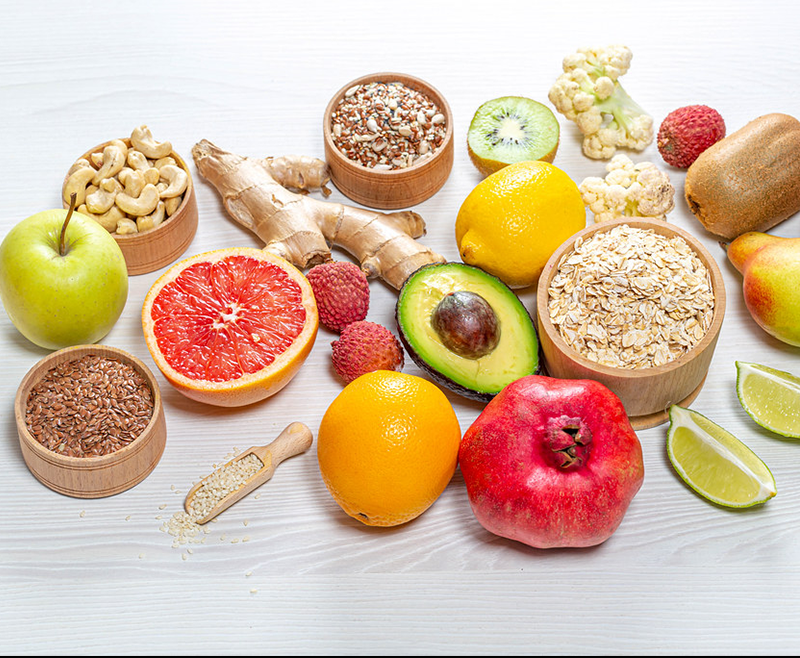
## How to incorporate food in Daily Routine

To optimize muscle growth, each meal and snack should include at least 20–30 grams of protein.
To achieve the calories you need for bulking, try adding more calories throughout your day. For example:
-Start with a high-protein breakfast;
-Add in some extra calories at lunch or after dinner; and/or,
-Drink calorie drinks like milkshakes to get in additional calories when it's hard to meet your needs.
- Calories/ 20–30 grams of protein / high-protein breakfast / adding calories throughout the day/calorie drinks like milkshakes.
-Variety in meal plan/ Optimizing muscle growth/ Each meal and snack should include at least 20–30 grams of protein.

## Final Words
Some good examples include nuts, avocados, or peanut butter - all these foods contain a lot of calories but also healthy fats which will help you bulk up faster. Protein is also very important for muscle building as it helps build new tissues after working out so hard at the gym; some great sources of protein include meat (beef), fish (salmon), and eggs. Make sure to eat lean meats if looking to bulk up fast! Finally, carbs are needed by our bodies for optimal performance so it is important to not cut them out of your diet. Oatmeal, for example, is a great source of carbs that will help you bulk up fast.
Most bodybuilders need around 4000 calories per day to gain muscle quickly - be sure to adjust this number if your goal is either weight loss or maintenance! This simple bulking diet guide can have an amazing impact on how well you do in the gym and even better effects on your overall health!

